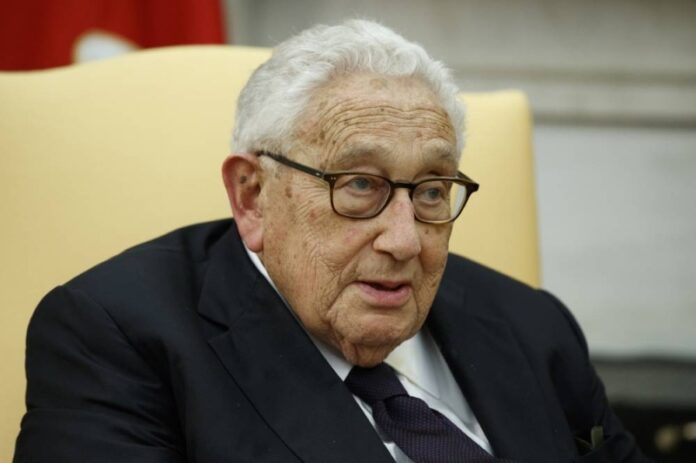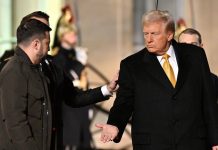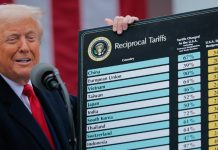WASHINGTON: Henry Kissinger, the former Secretary of State who shaped US foreign policy in the 1970s with his diplomatic skills and political savvy, passed away on Wednesday at the age of 100, his consulting firm announced. Kissinger was a towering figure in global affairs, who helped end the Vietnam War and opened up relations with China, but also faced criticism and controversy for some of his actions. He won the Nobel Peace Prize in 1973, but also sparked heated debates over his legacy for decades. Kissinger rose to prominence under Presidents Nixon and Ford, and became even more influential during the Watergate scandal, when he effectively acted as a co-president to the embattled Nixon.
Kissinger, who died at 100, was a towering figure in US foreign policy Henry Kissinger, who died at his home in Connecticut on Thursday, was a towering figure in U.S. foreign policy for more than half a century. He shaped the course of history as a key adviser to President Richard Nixon and later as secretary of state, pursuing a pragmatic and often controversial vision of America’s role in the world.
Kissinger was a master of diplomacy, who used secret channels, shuttle missions and strategic deals to advance US interests and influence. He opened the door to China, brokered peace in the Middle East, negotiated arms control with the Soviet Union and engineered a withdrawal from Vietnam. He also faced criticism for his support of repressive regimes in Latin America and his role in the bombing of Cambodia.
A Jewish refugee from Nazi Germany, Kissinger rose to become a respected statesman and a global consultant, advising presidents of both parties and meeting with world leaders until his final days. He was awarded the Nobel Peace Prize in 1973 and the Presidential Medal of Freedom in 1977.
Kissinger was aware of his own vanity and ambition, but also of his fears and doubts. He wrote in his memoirs that he felt “a premonition of catastrophe” as he gained power and influence under Nixon. He had a complicated relationship with the disgraced president, whom he admired for his foreign policy achievements but also blamed for his involvement in the Watergate scandal.
Kissinger remained active and engaged in his 90s, writing books, giving speeches and offering advice on global issues. He celebrated his 100th birthday in May 2023, receiving tributes from former President George W. Bush, former New York City Mayor Michael Bloomberg and others. He also faced questions about his legacy and his critics, who accused him of war crimes and human rights violations. He dismissed them as ignorant and defended his actions as the best he could do at the time.
Kissinger was a man of contradictions, who left a lasting mark on the world. He was a practitioner of realpolitik, but also a student of history and philosophy. He was a cold warrior, but also a peacemaker. He was a loyal servant, but also a ruthless operator. He was a friend and a foe, a mentor and a rival, a hero and a villain. He was, in his own words, “a witness to history.”






